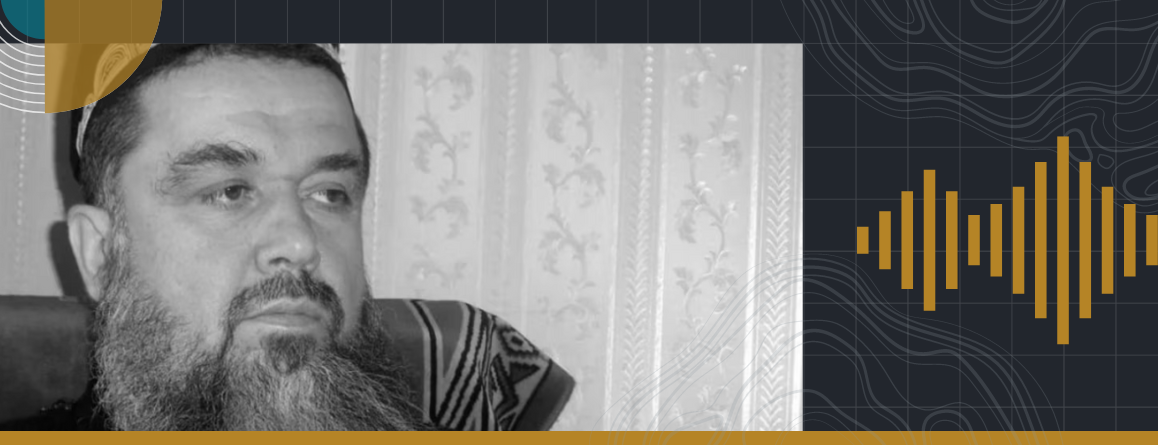Muhammadali Faizmuhammad, 65, one of the prominent leaders of Islamic Renaissance Party of Tajikistan (IRPT), died Friday, July 26, in a prison hospital in Vahdat. He suffered from heart failure and diabetes. In 2023 it was already reported that he is in poor health as he lost use of his leg due to health complications.
Muhammadali Faizmuhammad was detained in September 2015 along with 13 other IRPT board members as part of a severe mass crackdown on political opposition in Tajikistan. He was charged with articles 187 part 1 (organization of a criminal community) and part 2 (participation in a criminal association), 189 part 3 paragraph “a” (incitement to social, racial, national, regional, religious (confessional) enmity or discord committed by an organized group), 307 (public calls for a violent change in the constitutional order of the Republic of Tajikistan), part 3 – committed on the instructions of hostile organizations or representatives of foreign states, 131 part 3 paragraph “a” (Attempt to unlawfully deprive of liberty committed by an organized group), 32 part 3 (Attempt) – 309 part 2 paragraph “b” (Sabotage committed by an organized group), 179 (Terrorism) part 3 paragraph “a” – committed by an organized group, 306 (Forcible seizure of power or forcible retention of power), 313 (Armed rebellion), 307 (3) part 2 (Participation in the activities of political parties, public or religious association or other organization, in respect of which a court has made a legally binding decision on liquidation or prohibition of their activities in connection with extremist activities), of the Criminal Code of the Republic of Tajikistan. He was sentenced to 23 years in prison.
Tajik authorities accused the IRPT leadership of involvement in the attempted military mutiny of the former deputy defense minister Abduhalim Nazarzoda (Khoja Halim). Those members of the IRPT leadership who did not flee were arrested, and the party was declared a terrorist organization.
The cases against opponents of President Emomali Rakhmon often follow a troubling pattern, utilizing a range of politically motivated charges that are standard in silencing dissent. Individuals are frequently convicted under articles such as 187 part 1 and part 2, which address the organization and participation in a criminal community which in the context of Tajikistan can be an opposition political party, a media or an NGO, and 189 part 3 paragraph “a,” which pertains to incitement to social, racial, national, or religious discord by an organized group. Additionally, article 307, which criminalizes public calls for violent change to the constitutional order, is commonly invoked, particularly when authorities allege that the accused is affiliated with a political party or organization banned by Tajikistan. Most suppoters and members of IRPT and their family members have been charged with this article. Other serious charges, including terrorism (article 179), armed rebellion (article 313), and sabotage (article 309), are also employed to delegitimize opposition figures and dissidents. The repeated use of these articles reflects a systematic strategy to portray political opponents as threats to national and global security, thereby justifying their imprisonment and the overarching suppression of political dissent within the country. Such legal maneuvers not only undermine the principles of justice and human rights but also create an environment of fear that stifles legitimate political discourse in Tajikistan.
Muhammadali Faizmuhammad’s death in prison underscores the grave consequences of the Tajik government’s relentless crackdown on political opposition. As a prominent leader of the Islamic Renaissance Party of Tajikistan, his case exemplifies the systematic repression faced by dissenters in a political landscape marked by fear and intimidation. The charges leveled against Faizmuhammad and his fellow IRPT members, rooted in vague and politically motivated legal frameworks, are indicative of a broader strategy employed by President Emomali Rakhmon’s administration to silence opposition voices under the guise of national security. This troubling pattern not only compromises the foundational principles of justice and human rights but also erodes the democratic fabric of Tajik society, leaving many individuals vulnerable to persecution simply for their beliefs and political affiliations. As the international community observes these developments, there remains a pressing need to advocate for the protection of human rights and the restoration of political freedom in Tajikistan, ensuring that the voices of those like Faizmuhammad are not lost in the shadows of oppression.
